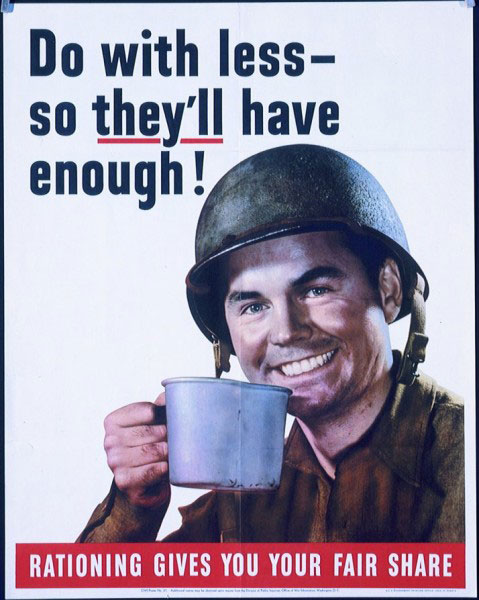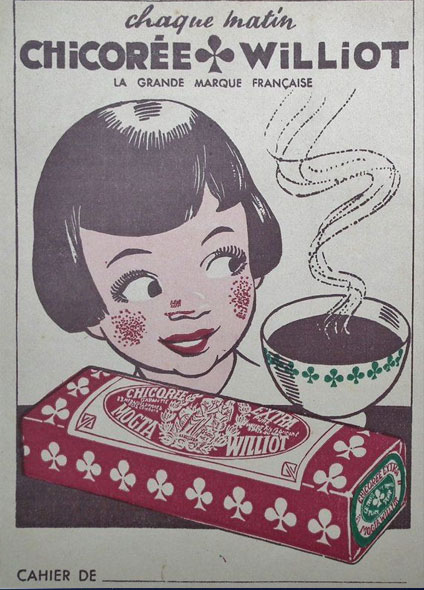Crisis in coffee: stories about coffee from World War II

In times of general crisis, our favorite beverage is severely affected.
The "Coronavirus crisis" has been described by many as "the war we did not live through." And while the situation cannot be compared, it is the biggest global crisis humanity has experienced since the 1950s.
World War II was the bloodiest conflict in humanity, leaving some 80,000,000 dead and much of the planet in ruins. But war, in addition to its destructive nature, has an extremely violent effect on the daily lives and lives of millions of people around the world. In addition to the obvious effects of the war, it is interesting to look at the changes that the Great War has brought to a favorite part of human life: coffee!
Coffee rationing: the reality of war

War is one of the fastest ways to destroy the economy. Production units are turning to war or healthcare, countries are being cut off, transportation is being hampered, imports and exports are collapsing. In addition, freight, such as trains, ships or even airplanes, are often ordered for military purposes. As a result, products that have been considered data for a while become hard to find. Typical examples of these goods are, among others, sugar and coffee.
In both Europe and the Americas of World War II, there was a rapid shortage of coffee stocks. And while some countries, particularly occupied by Axis forces, have had a generalized food crisis, such as Greece, in the United States the problem has been more limited, focused on goods such as coffee.
Thus, the policy of "bulletin" or "rationing" was adopted. Extraordinary state laws defined the amount of coffee that each resident had the right to procure, in order for stocks to reach everyone, but also to avoid the effects of profiteering and the black market, and even cafes limited the amount they could serve to each customer. At the same time, coffee companies have launched extensive campaigns on the daily economy of coffee. Among other things, they recommended that ground coffee be dried and used again, up to three or four times.
The policy of the "bulletin" had another purpose: to provide significant quantities of coffee to the troops on the front lines. Restricting coffee consumption was no longer just a necessity, but a patriotic duty.
Coffee substitutes: human ingenuity in times of crisis
 Coffee is produced in many countries around the world, but it has one thing in common: they are found in the coffee zone, in areas that are easily cut off from the rest of the world in a general crisis. Thus, during World War II, coffee became increasingly difficult to find its way to European countries and the United States.
Coffee is produced in many countries around the world, but it has one thing in common: they are found in the coffee zone, in areas that are easily cut off from the rest of the world in a general crisis. Thus, during World War II, coffee became increasingly difficult to find its way to European countries and the United States.
Faced with a lack of coffee, people reacted with ingenuity, looking for substitutes. It is worth noting that most coffee substitutes do not have caffeine and may not even taste like coffee. They replace the habit of coffee more than the drink itself.
In Occupied Greece, the most common coffee substitute was made from chickpeas, which, after being roasted a lot, were ground into powder and served as Greek coffee. In other countries, such as the United States or Great Britain, "coffee" was sold made from roasted cereals, but also from chicory, the root of a radish, used in India and even in some parts of America.
How Coffee Affects History: The 1977 Coffee Crisis and Vietnam
Coffee, like any agricultural product, has good and bad years. One of the biggest crises in coffee history occurred in 1977, when Brazil's crop was almost destroyed, causing global coffee prices to rise sharply. Countries with weak currencies saw coffee stocks fall sharply. In this context, the then East Germany decided to take action.
So he tried to reach direct agreements with developing countries, especially with communist states. Vietnam was one of the countries that responded to the DDR's call, and increased its production sharply, even investing in cheap and durable Robusta, which quickly yielded satisfactory crops. One of the results of this "experiment" was that Vietnam became the third largest coffee producer in the world, but also the largest producer of Robusta.
Coffee, as an integral part of human daily life, has also passed "by fire and iron" - every time we enjoy a hot coffee, we can feel lucky and grateful!










